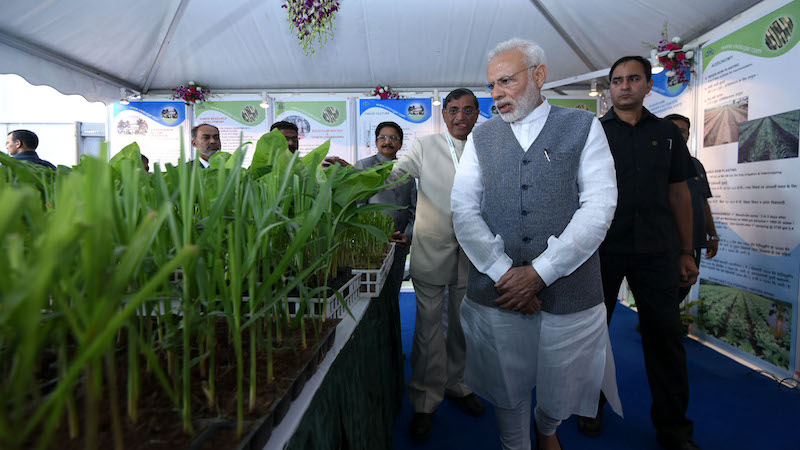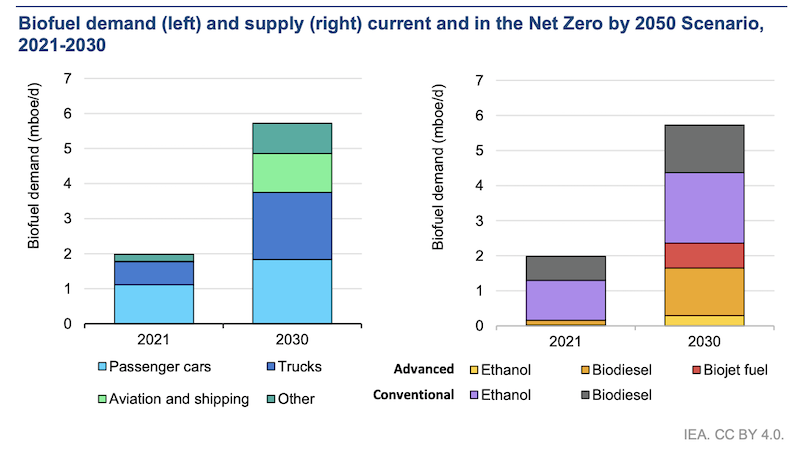Nineteen countries signed up to an India-led alliance this month to boost production of biofuels, but experts raise sustainability concerns
Transforming farmers from annadatas to urjadatas, from food producers to energy producers. India’s blueprint to lift the livelihoods of tens of millions of farmers reached the international stage in September, as prime minister Narendra Modi triumphantly unveiled the Global Biofuels Alliance at the G20 summit in Delhi.
After months of behind-the-scenes negotiations, nineteen countries signed up to the India-led coalition. These included the United States and Brazil, the world’s top biofuel producers.
“India wanted to bring international attention to a subject important to them,” a source involved in the alliance’s creation told Climate Home News. “They thought this was a low-hanging fruit that countries had not talked about much and they could turn it into an international topic.”
The alliance pitches biofuels as key to the energy transition away from fossil fuels. But critics argue they could do more harm than good by diverting land away from other priority uses, fuelling deforestation and unleashing significant amounts of emissions across their supply chains.
What are biofuels?
Biofuels are any type of fuel derived from organic matter, whether plants, animal waste or algae. Most are liquid fuels used for transportation, typically blended in varying percentages with conventional fossil-based petrol or diesel.
Over 90% of liquid biofuels – bioethanol and biodiesel – are made from food crops, like corn, sugarcane, soybeans or vegetable oils, according to the International Energy Agency (IEA)
In India, biofuel is synonymous with bioethanol derived from sugarcane, of which the country is one of the largest producers in the world.
Unlike Brazil or the United States, India has only recently become an influential player in the sector following the introduction of government policies and subsidies spurred by political calculations.
Appeasing farmers
Six years ago the Modi administration was facing a mounting problem in politically crucial states. Sugar overproduction and declining prices meant the country’s nearly 50 million sugarcane growers were not being paid in time by sugar mills, which collectively owed billions of dollars to farmers.
As tensions simmered to the surface, Modi made a promise: “I know there are cane dues. I will make sure every penny of yours will be paid.”
The government’s plan to ease the pressure on farmers was to divert increasing quantities of the crop from food supply chains to the production of bioethanol. It set a “remunerative” fixed price, facilitated loans and raised the bioethanol blending targets, driving up demand.
The human cost of sugar: A four-part investigation into India’s backbreaking sugarcane industry
As bioethanol is sold to oil companies, payments to sugar mills – and subsequently to farmers – quickened: down to 3 weeks from the minimum 3 months’s wait from the sale of sugar, according to the government.
Lydia Powell, an energy policy analyst at the New Delhi-based Observer Research Foundation, says India’s push for a biofuel alliance is mostly a “PR exercise” for the benefit of the agricultural sector which forms a “very strong lobby” in the country.
India’s biofuels pitch
India’s efforts to attract interest around an international coalition began in earnest at the start of 2023, when it took over the G20 presidency from Indonesia.
The prime targets were Brazil and the US, which as top producers were easily enticed, according to a source with knowledge of the discussions. “Convincing other countries to join took some time and it was a bit of a challenge,” they added.
Rich countries ‘confident’ $100bn climate finance delivered in 2023
The coalition was originally meant to be announced at the G20 energy ministers’ meeting in Goa, but was delayed while India waited for more joiners. The big day came at the leaders’ summit in Delhi, when Modi flanked by Joe Biden and Lula da Silva unveiled the alliance of 19 countries, shortly after G20 countries had reached a compromise on the summit’s declaration.
According to Francis X Johnson, a biofuels expert at the Stockholm Environment Institute, countries had various motives to join the platform. “Argentina is an agricultural power and could develop its biofuel industry further,” he said. “The UAE has important connections to aviation and shipping where biofuels could play a particular role. Singapore is a trading hub. Poorer countries are keen to have technology transferred.”
Sustainability questions
What the alliance will do is not yet clear, with more work expected in the next few months to define its structure and targets.
Experts told Climate Home News that if it is to succeed the focus needs to be on sustainability.
The US Department of Energy told Climate Home News that “security, affordability, and sustainability will be core tenets of the alliance”.
Biofuels are considered renewable energy sources because the materials used to produce them can be replenished, unlike fossil fuels. But that does not mean they are always clean or sustainable.
Read More


